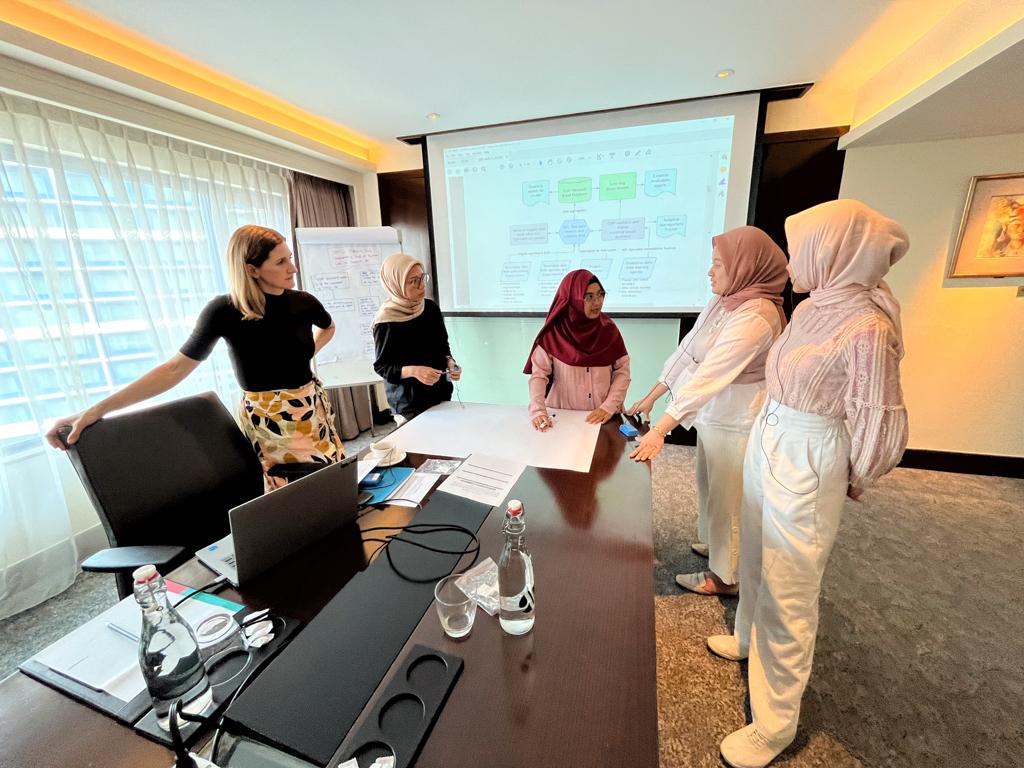
This is an excerpt from JSI’s Medium post exploring the Reimagining Technical Assistance (RTA) initiative’s critical shifts framework, which identifies changes needed to move to a more country-driven, coordinated, and equitable system that delivers higher returns on investments and better health outcomes for all. Read the original blog post here.
The USAID-funded Country Health Information Systems and Data Use (CHISU) program, led by JSI and a consortium, is working to strengthen organizational development of local partners in Indonesia for a stronger health information system. Indonesia is implementing its digital health transformation strategy with support from CHISU, and for this strategy to succeed, it is essential that the Ministry of Health has access to local partners that can provide technical assistance to subnational governments.
CHISU partners with Castellum Digital Indonesia (CDI), a local Indonesian organization, to help subnational governments achieve digital health transformation. CHISU is supporting CDI’s organizational development goals through capacity self-assessment; identification of capacity priorities; development of a capacity-strengthening action plan; and capacity-strengthening workshops. The support for CDI’s goals shifts power and resources to local partners and ultimately ensures the Indonesian government has long-term partnerships to facilitate the critical shifts needed to achieve better health outcomes.
At the Prince Mahidol Award Conference this year, we are sharing our RTA expertise during a session on Recognizing and Addressing Legacy Systems of Power and Privilege. Join us as Stephanie Watson-Grant, deputy project director of CHISU; Ratih Syabrina, director of CDI; Shameka Harmon, public health advisor with the U.S. President’s Malaria Initiative at USAID; and Chris Seebregts, founder and CEO of Jembi Health Systems (a CHISU partner) discuss localization challenges and opportunities that local partners are navigating and how best to apply RTA’s critical shifts.